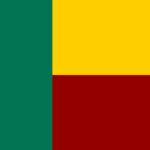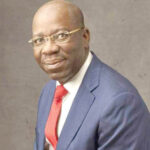The Benin culture is very unique, both in practice and outlook. Perhaps that is the reason it is referred to as the home of culture.
Till date, its culture and tradition are still being revered. Unlike in other kingdoms where culture has been modernised, Benin people, both at home and in the diaspora still follow their culture and tradition bequeathed to them by their ancestors.
The Benin Kingdom is also renowned for its administrative system of governance, which is far ahead of other kingdoms of pre-colonial era. The Odionwere system of administration was, and is still one of its traditions. It precedes colonial administration in Nigeria. Who are the Odionweres?
The Odionwere (the village head) simply means the oldest man in the village. The position is by appointment, not hereditary, and such appointment is at the instance of the Oba of Benin, who is the custodian of the Benin customs and tradition.
Odionwere succession is determined on the basis of gerontocracy from the paternal lineage in Benin. Besides, it is not tenure-bound. Someone will cease to be Odionwere when he dies or is removed by the Oba if he either fails to carry out his duties or commits a sacrilege.
The position of Odionwere, the administrative head of a village, is not determined by social status, but must be an indigene of a village or community in any part of Benin Kingdom.
An Odionwere oversees his domain on behalf of the Oba of Benin and helps to uphold the Benin customs and tradition in consultation with elders across the seven local government areas in the Edo-South senatorial district of Edo State.
An Odionwere also performs political and religious duties, as well as maintains law and order either directly or indirectly, as assigned to him by the Oba and his ancestors. He either carries out traditional duties by himself or plays a supportive role of a traditional priest (Ohen) in some communities or villages. These roles are well defined by the Oba of Benin.
Available records show that the Odionwere age grade system transcends beyond the senatorial district to Edo-central and part of Edo-north senatorial districts, which were formerly among the components of the Benin Kingdom.
The Odionwere age grade system of administration, according to Edo literature, is a system of government where the oldest person in the community or village rules over the area.
The system has been in operation since the Benin nation was founded, which gravitated into the Ogiso dynasty that later dovetailed into the Oba dynasty (Oba of Benin), which is seen by Benin people as God’s representative head on earth.
To say that it is the oldest system of government in this part of the world is stating the obvious.
The Benin nation had used the Odionwere system of government for over 1,000 years before the Ogiso dynasty and the Obaship dynasty it now operates, according to traditional literature.
In a community where there is a communal shrine, the Odionwere could either be made to oversee the Ohen (traditional priest) or vice-versa on behalf of the Oba in line with ancestral dictates.
The Odionwere system has been very effective in the administration of justice, maintaining peace and order and security of communities on behalf of the Oba of Benin, who interfaces with them at specific periods.
The Oba of Benin’s palace mediates over disputes concerning the appointment of an Odionwere and other related matters arising from the administration of justice, maintenance of peace and order and security of communities on behalf of the king, who interfaces with them regularly.
Either by divinity, which is inherent in the people, or by default, an Odionwere is known to the indigenous people in communities/villages ahead of appointment and installation.
The Benin tradition also provides for enlistment of elders in the community into the Council of Elders (Oguedion) hall of fame.
In a similar vein, when the children attain a certain age in life, they will be upgraded into the youth stage called Ighele in Edo language. When they grow up to another stage in life, they can be prepared to join the elders group (Edion), where key issues affecting the community and the people are discussed and decisions taken.
There is something unique in choosing and installing an Odionwere in line with the culture and tradition of the Benin Kingdom.
Upon the death and burial of a departed Odionwere, the new village head chooses a youth leader, Okhaigele, who helps in the maintenance of the community and other related functions that may be assigned to him in consultation with elders of the village.
In areas where the Enogie (Benin Duke) superintends, the Odionwere is expected to liaise with him based on the authority of the Oba of Benin.
Accordingly, if the new village head is pleased with the conduct of the Okaighele, who served during the time of the transited Odionwere, he can be retained, but if the youth leader is questionable, the newly installed Odionwere is at liberty to drop him and appoint another person after consulting the elders of the community.
How an Odionwere is installed
The death of an Odionwere must be reported to the palace ahead of the burial rites. The appointment of a new village head is approved by the palace and installation held in a grand ceremony.
The installation takes a period of time because it involves some traditional rites.
Besides, installation of an Odionwere must be witnessed by indigenes of his community. It cannot be done in isolation.
The installation of an Odionwere is both political and spiritual. He goes through spiritual processes to enable him carry out his functions effectively in line with Benin customs and tradition.
The installation cannot take place without the permission of the Oba of Benin; hence his permission is usually sought ahead of the commencement of the funeral of the departed Odionwere.
After granting the permission, the community will still report to the Oba to pave way for the installation of a new one after two years in the Gregorian calendar and three years in Edo calendar. The period for the appointment of a new Odionwere starts counting from the date the former one joined his ancestors.
In a nutshell, in the Benin Kingdom, the Odionwere is like the modern day state governor. He is the political and spiritual head of the community where there is no priest.
Contributors: Osaigbovo Iguobaro, the chief press secretary to the Oba of Benin; Chief Omo-Osagie Utetenegiabi, the Obadolagboyi of Benin, and Kingsley Agbavo.

 Join Daily Trust WhatsApp Community For Quick Access To News and Happenings Around You.
Join Daily Trust WhatsApp Community For Quick Access To News and Happenings Around You.


